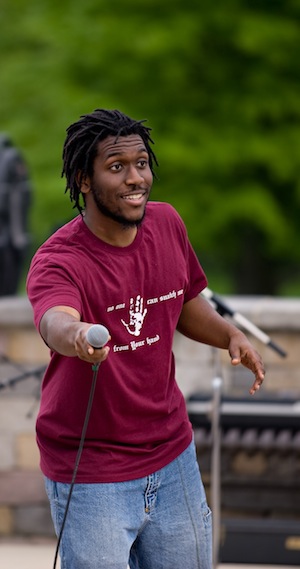
“Do not suppose that I have come to bring peace to the earth. I did not come to bring peace, but a sword. For I have come to turn a man against his father, a daughter against her mother, a daughter-in-law against her mother-in-law.”
-Matthew 10:34-35 NIV
[dropcap3]I[/dropcap3]confess that there have been times when I have winced when a non-Christian professional counseling colleague and friend of mine asks me to explain how “biblical” and “university” are part of the same name. I know he is baiting me. I am not reluctant to argue my position. I am sad because he concludes that I am wrong and I conclude that he is lost. In the present culture “biblical” is a term of exclusion. My friend thinks that people who believe the Bible are separatists who reject the cultural mainstream. He is passionate about embracing a multicultural worldview and teaches both a course on culture and sexuality and a course on counseling ethics that emphasizes multiculturalism. In his view, what Christians believe makes them a little dangerous. He tells me that “The Academy” should be the place where faculty encourages students to engage culture, to expand their intellectual horizons, identify and repudiate their prejudices, rid themselves of small mindedness, and embrace diversity. All of these mandates are empowered by a prevailing post-modern worldview that relativizes the knowing process. That means affirming a truth is downright prejudicial and anachronistic. From his perspective, all of this makes the notion of “biblical” + “university” seem oxymoronic and true multiculturalism impossible.
My friend and I have points of agreement and disagreement. Let me begin by asking the obvious question: What is multiculturalism and how do Christians applying a biblical worldview think about the reality of divergent cultures? I would propose two views of multiculturalism. The first exists apart from a debate about worldview, and is the less controversial of the two.
 In this first description of multiculturalism the focus is less philosophical and more pragmatic. Advocates of this view of multiculturalism begin with the observation that human beings are naturally culturally egocentric. Their cultural egocentrism often leads to prejudice and personal and institutional discrimination. At this level, multiculturalism educates people to become blind to differences and embrace their common humanness. It simultaneously assumes all cultural values and practices are equally valid. To be able to embrace diversity, students in the university community should be immersed in cross-cultural experiences and develop cross-cultural communication skills. We must recognize the need to continually ask questions about the meanings of words and practices. We need to get out of our comfort zone as observers and experience other cultures. This is good medicine for American evangelicals who have historically assimilated faith into their cultural practices rather than allowing their faith to critique their cultural practices.
In this first description of multiculturalism the focus is less philosophical and more pragmatic. Advocates of this view of multiculturalism begin with the observation that human beings are naturally culturally egocentric. Their cultural egocentrism often leads to prejudice and personal and institutional discrimination. At this level, multiculturalism educates people to become blind to differences and embrace their common humanness. It simultaneously assumes all cultural values and practices are equally valid. To be able to embrace diversity, students in the university community should be immersed in cross-cultural experiences and develop cross-cultural communication skills. We must recognize the need to continually ask questions about the meanings of words and practices. We need to get out of our comfort zone as observers and experience other cultures. This is good medicine for American evangelicals who have historically assimilated faith into their cultural practices rather than allowing their faith to critique their cultural practices.
Supporters of this view of multiculturalism suggest that educators purposefully incorporate activities that enable students to discover the value of other ethnic traditions and cultures through exposure to varieties of cultural practices. At an institutional level, the university community must actively inculcate multiculturalism, not simply by teaching courses on other cultures, but by identifying and repudiating institutional cultural elitism. Do students from other cultures feel welcome in our classrooms? Do our teaching methods reflect theories of multicultural learning styles? Do our methods in evaluating students reflect differences in the ways in which different cultures measure performance, achievement, status and community?
[blockquote align=”right”]A biblical worldview does not simply embrace cultural diversity; it engages diversity in a dialogue about truth.[/blockquote]How does this work in the counseling programs? Without training, counselors are inclined to be “culturally encapsulated,” limited in recognizing their own perceptions and biases that can harm their counselees. We use classroom instruction and small group training experiences to teach counselors in training to become increasingly aware of their personal culture, to seek out contact with groups of Christian people who are culturally different, and to ask penetrating and practical questions that enable them to identify unique qualities in every culture where they will practice as counselors. We encourage students to use practicum experiences to develop skills as culturally aware practitioners.